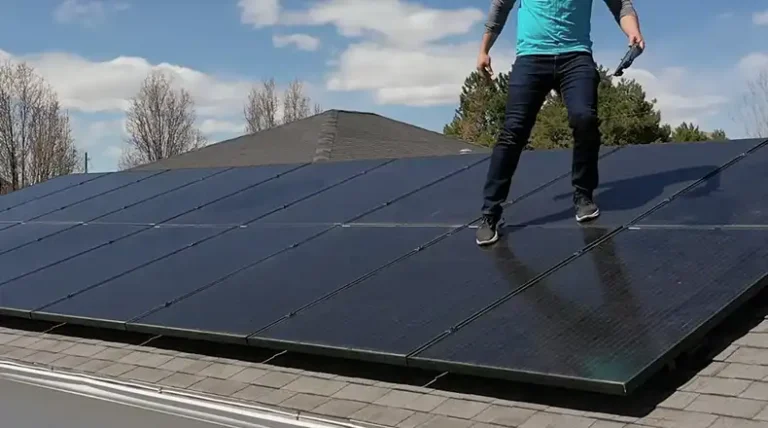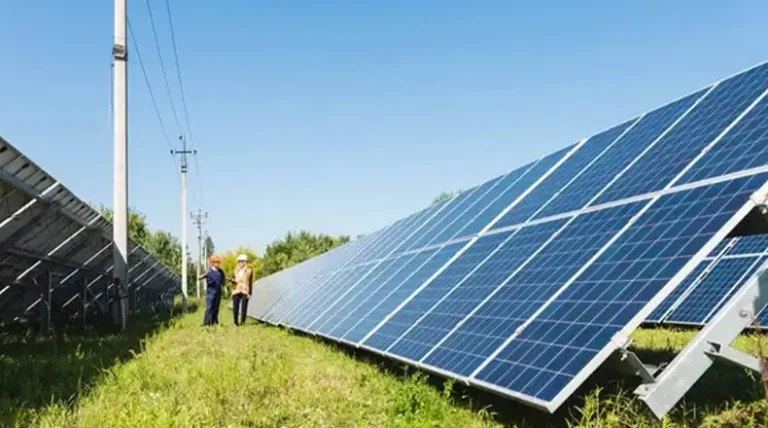How to Be Successful in Solar Sales (What Should You Know and Follow)
The solar industry offers an exciting career path for driven salespeople. However, the complex and constantly evolving nature of the solar sector also presents unique challenges. Success requires patience, specialized knowledge, and the ability to educate prospective clients.
An effective solar salesperson must understand the specifics of local markets, keep up with the latest technologies and incentives, and craft customized proposals for each client. Additionally, shifts in policies and electricity prices create economic uncertainties. Navigating these complexities to sell systems requires strategic thinking, consultative skills, and perseverance.
The good news is that the right approach and mindset can set you up for a fulfilling long-term career in a growing industry. In this guide, I have covered key strategies for developing expertise, building a client base, closing deals, and adapting to shifts in the solar marketplace. Read on to learn the secrets to excelling in solar sales.
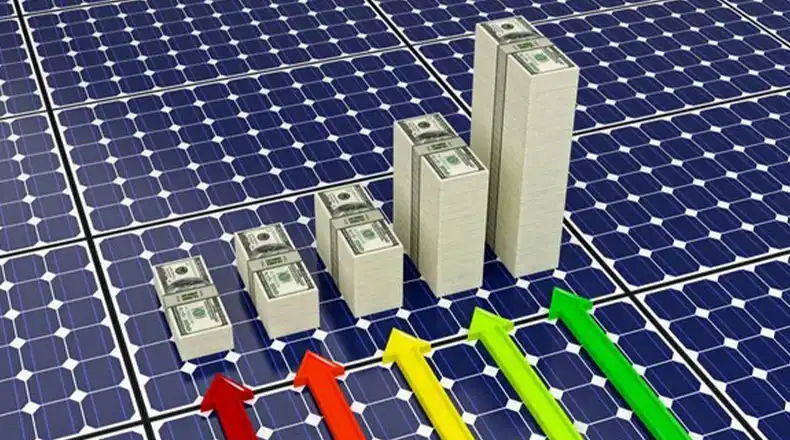
Step 1: Gain the Basic Knowledge About the Solar Industry
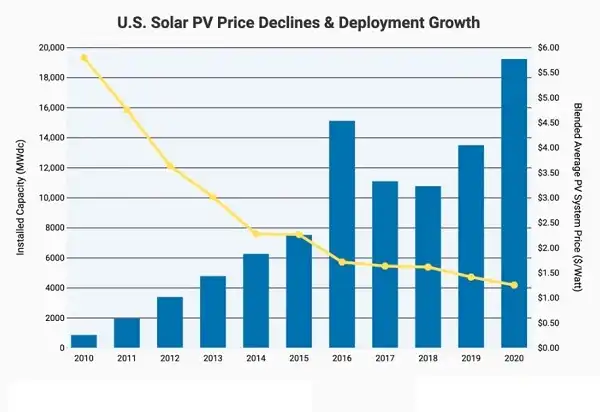
To gain credibility with prospective clients, the first step is deepening your knowledge of the solar industry. Key areas to focus your learning include:
Solar Basics
Learn the fundamentals, like how solar panels work, the components of PV systems, and the basics of incentives and net metering policies. Understand total costs, expected output, and financing options.
Local Regulations and Incentives
Research the specific solar policies, electricity rates, incentives, permitting processes, and trends unique to your region. Incentive landscapes continually evolve. Stay up-to-date on changes.
System Design and Technology
Understand technical design considerations, including optimal solar array configurations, component options, and sizing for each client’s electricity usage. Keep learning about new products and innovations on the market.
Custom Proposals and Financial Modeling
Master how to assess a client’s past electricity bills to design a custom system to offset usage. Calculate cost benefits and model project timelines, revenues, incentives, financing terms, and estimated return on investment.
Step 2: Understand Your Audience

To be successful, you must understand your audience and their needs. Research your prospects and clients to learn about business, their industry, and their challenges. This will help you connect with them on a personal level.
Identify Customer Motivations
Take time upfront to determine what motivates different prospects to consider solar. Whether cost savings, energy independence, or environmental stewardship, understanding priorities will strengthen your pitch.
Research Demographics
Study the demographics and psychographics of your target regional market. What matters to suburban families vs farmers and rural households? Match messaging accordingly.
Keep Learning
Continually deepen knowledge of local consumer viewpoints. Identifying common objections or misconceptions will enhance community engagement.
Step 3: Build a Strong Reputation
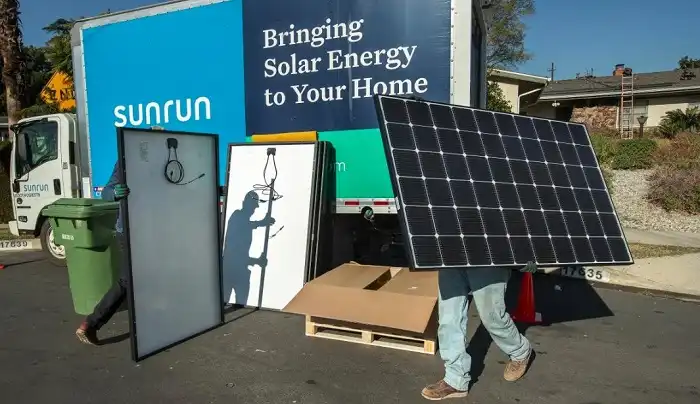
As you establish solar expertise, prioritize building trust and credibility with potential customer bases:
Seek Referrals
Referrals from past customers are especially valuable. Request introductions or testimonials from clients willing to talk to potential customers about their experience.
Network Locally
Attending community events and networking with groups focused on green energy or sustainability issues expands your local reputation. Getting involved with local environmental initiatives also demonstrates your commitment to the industry.
Develop Case Studies
Add testimonials and detailed case studies from past projects to your website and marketing materials. Concrete examples of financial and energy savings build confidence in your experience.
Earn Certifications
Gaining additional solar credentials and affiliations can further establish your expertise. Consider certifications from the North American Board of Certified Energy Practitioners (NABCEP) or established solar associations.
Step 4: Be Transparent

You always have to be honest and transparent with your clients. If you are not sure about something, always disclose it. You need to make sure that you are always honest with them.
Address Concerns Directly
When presented with solar concerns, provide data and case studies to illustrate capabilities and reliability. Honesty establishes trust.
Set Realistic Expectations
Avoid overpromising with best-case scenarios alone. Offer accurate projections on long-term electricity production, maintenance needs, etc. Transparency supports dependability.
Communicate Evolving Incentives
As market changes emerge, promptly inform prospects and past clients. Proactively advising them of impacts to cost or savings projections maintains openness.
Step 5: Offer a Free Consultation

You have to understand what makes you different from the other solar companies. You can try to be different by offering a free consultation.
Share Your Expertise
Offer free site assessments or initial video consultations focused on education rather than sales. Audits presenting electricity bill savings establish your credibility.
Build the Relationship
Consultations allow extended face time to better understand needs beyond energy bills, like aesthetic preferences or interest in adding EV chargers. Getting to know customers fosters connections.
Close Information Gaps
Use meetings to identify areas requiring additional clarity, like payback timelines or equipment options. You can tailor follow-up material accordingly.
Step 6: Lead Generation and Qualification
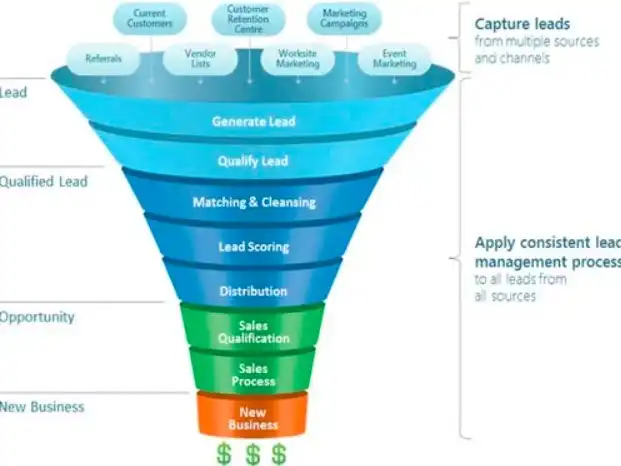
An essential sales skill is generating promising new leads. Effective strategies include:
Cold Calls and Canvassing
Cold-calling prospective homeowners and businesses introduces you to new clients. Prepare scripts covering your credentials, offering a free site assessment, highlighting incentives, or estimating potential cost savings.
Email Campaigns
Email outreach and newsletter campaigns keep you top of mind for pending deals. Share educational solar content rather than overt advertising.
Social Media Presence
Maintaining an active social media presence establishes you as a thought leader. Share solar news, post FAQs, highlight metrics from past projects, or share behind-the-scenes photos from installs.
Attend Industry Events
Setting up booths or speaking at green energy conferences and exhibitions connects you with engaged prospects already interested in solar technology.
Once you’ve generated leads, you must skillfully qualify each prospect to assess real interest, needs, and financial capability. Screening questions can determine a budget, motivation for considering solar, roof ownership status, or urgency to get a system installed.
Step 7: Consultative Sales Approach

Solar sales require an educational, consultative approach. Each prospect will have unique motivations, budget constraints, electric usage patterns, and questions. Key strategies include:
Ask Questions
Take your time with a sales pitch. First, probe to understand pain points and what is driving interest in solar panels. Listen closely to frustrations about rising energy bills or sustainability goals.
Tailor Your Pitch
Match your script to hot-button issues for each client. Does lowering expenses motivate them? Emphasize cost savings from solar. Are they eco-conscious consumers? Discuss environmental benefits.
Educate Thoroughly
Ensure clients fully understand the terminology, equipment, incentives, pricing structures, and financial trade-offs between purchase options like loans or leases. Being knowledgeable earns trust.
Personalized Proposals
Provide custom recommendations for array size, positioning, and equipment packages tailored to their roof size, electric usage, budget constraints, and aesthetic preferences.
The most effective solar sales professionals act as trusted energy advisors rather than pure salespeople. Taking time to uncover the customer’s true needs and craft solutions to suit their unique situation results in higher close rates and long-term client relationships.
Step 8: Overcoming Objections

When pricing systems, you’ll inevitably encounter customer objections over cost or concerns about purported drawbacks of solar technology. Common issues include:
Cost Objections
- High upfront investment
- Lengthy payback periods
- Affordability concerns
Technology Objections
- Lower efficiency in cold or cloud climates
- Possible roof leaks or damage
- Concerns over panel disposal after lifespan ends
Prepare data-driven responses to diffuse common concerns. For cost barriers, provide options like financing plans spreading out payments over time. Share case studies from local installs proving profitable over decades. Advise on the lifespan of equipment warranties and performance guarantees today. For technology issues, illustrate innovations making solar a viable renewable energy source across wider geographies and weather conditions.
The most persuasive strategy is listening and asking thoughtful questions to understand root worries. Then personalize explanations of why solar works, backed by your expertise and proof points. Transparency builds trust in your proposed solution.
Step 9: Closing Deals

To push prospects ready to purchase over the finish line:
Provide Clear Next Step Guidance
Detail all requirements after signing like securing permits, scheduling install dates, finalizing incentive paperwork, etc. Make things easy by outlining tasks and timelines.
Share Examples of Finished Projects
Seeing neighborhood installations helps them visualize panels on their own property. Drive them by local examples of houses with solar arrays.
Follow Up Regularly
After initial pitches, continue nurturing leads by providing helpful solar content. Check-in to remind them of expiring incentives and keep your services top of mind.
Offer Guarantees
Offer performance guarantees promising a minimum energy offset percentage. Offer referrals to past customers as references to establish trust.
Provide Final Quotes
Prepare and walk through final system pricing breakdowns, financing terms, and electric bill savings estimates. Make it easy to say yes!
Persistence and systematic follow-up turn promising leads into satisfied customers.
Step 10: Adapt to Evolving Solar Incentives

One constant in the solar industry is changing regulatory landscapes. Federal, state, municipal, and utility incentives continually evolve. Successful sales require tracking policy updates directly impacting deal profitability.
For example, changes to net metering policies which compensate for excess solar energy sent back to the grid can greatly alter project economics. SolarRenewable Energy Credit (SREC) programs providing additional revenue from selling certificates also fluctuate over time.
When market shifts occur, savvy solar pros immediately quantify the impact on pricing and modify sales tactics accordingly. You must educate yourself and prospect based on new industry realities.
Adapting quickly shows prospects your expertise regarding the latest developments. Being a reliable information source builds trust in uncertain times. Transparently explaining new costs or benefits allows clients to make informed decisions going forward.
Industry flexibility and proactively adjusting to solar incentive changes sustain profitable operations over the long term.
Conclusion
The strategies above outline how to skillfully navigate complex industry ecosystems and evolving regulatory environments. By mastering financial models proving solar’s economic payoffs, providing customized proposals, and adapting to market changes, sales professionals can build trust and position themselves as go-to advisors. If you remain flexible and committed to solar education, you can make an impact selling the financial and environmental benefits of renewable power to your community. Thanks so much for reading! I hope you found this guide helpful. Please leave any solar sales questions in the comments section below. I wish you all the best on your solar sales journey ahead!
Short Questions and Answers
What Skills Are Most Important For Being A Successful Solar Sales Rep?
The most important skills include expertise on local solar regulations/incentives, system design/technology, financial analysis, and consultative questioning to understand client needs. Strong presentation abilities and persistence in closing deals are also vital.
What Qualifications Do I Need To Sell Solar Systems?
While no license is required, gaining NABCEP sales certifications bolsters credibility. Many companies also prefer sales experience and a passion for sustainability. Technical solar knowledge can be learned on the job.
How Much Do Solar Panel Salespeople Get Paid?
Most earn a base salary plus commissions on deals closed. With experience, top performers at mature firms can earn $100k+ annually. However, sales fluctuate seasonally and pay is lower at early-stage startups.
What Does An Average Day Look Like For A Solar Sales Rep?
Sales reps split time between lead generation, consultations to assess prospect needs/suitability, designing custom proposals, answering questions, and finalizing contracts. Administrative tasks like processing invoices and paperwork also occur daily.
How Stable Of A Career Is Solar Sales Long Term?
Market analysts expect double-digit growth in solar jobs over the next decade as adoption expands. Federal incentives also continue to drive demand. However, regulation changes do impact short-term business stability. The long-term outlook is positive.

![[Solved] Why Is My Solar Panel Voltage Low](https://www.itekenergy.com/wp-content/uploads/2024/03/Why-Is-My-Solar-Panel-Voltage-Low-768x428.webp)

